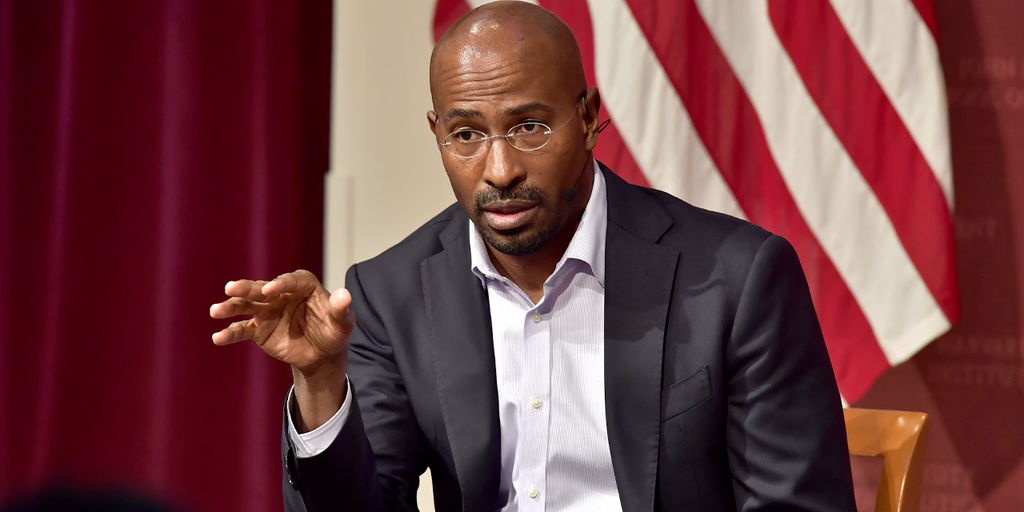Van Jones Says Workplace 'Woke' Activism Has 'Gotten Ridiculous,' Urges Move Away from Politicized Offices
The former Obama adviser and commentator praised a retreat from workplace activism as CEOs push to separate politics from the office, reflecting a broader corporate shift since the early 2020s.
Former Obama administration adviser Van Jones said workplace activism has “gotten ridiculous” and argued it is time for employees and companies to move on from overt politicization of the office.
Jones, a political commentator, made the remarks in recent media appearances as a number of corporations and executives signal renewed emphasis on keeping politics out of workplace operations. "For some companies, the new message to employees is ‘Check your politics and your activism at the door when you come to work,'" CNN host Abby Phillip said while discussing the trend on a Saturday panel.

Jones said he will not mourn the retreat of workplace activism, which surged in the early 2020s as firms expanded diversity, equity and inclusion programs and publicly embraced social responsibility initiatives. He described the more recent wave of employee-driven political expression as excessive and suggested that a reassertion of managerial control over workplace norms is underway.
Business leaders have increasingly pushed back against employee activism amid concerns about productivity, legal exposure and the role of private employers in public debates. CEOs have signaled that the office should not function as a public square, and some companies have revised or scaled back high-profile DEI efforts, according to public statements and corporate policy shifts reported this year.
The debate over workplace politics has extended to newsrooms and other public-facing institutions. Some observers and critics have argued that media organizations became visibly partisan during the period of intense internal activism, a critique that has animated calls for clearer boundaries between employees' public political expression and their professional responsibilities. Jones and others have questioned whether the increased politicization has helped or hindered those institutions' missions.
Supporters of workplace engagement have argued that employee activism can surface legitimate concerns about equity and governance that benefit organizations and communities. Advocates said that corporate responses to social issues can reflect customer and employee values, and that internal advocacy has sometimes prompted meaningful policy changes. Yet the recent corporate recalibration highlights tensions about how employers balance social commitments with expectations of neutrality and operational focus.
Jones, who served in the Obama administration and later became a prominent commentator, spoke against what he characterized as excess while acknowledging the role of past activism in drawing attention to inequities. His comments come as employers, employees and policymakers continue to weigh where responsibility lies for addressing social and political concerns—inside workplaces, through civil society or in government.
As companies refine policies and leaders publicly address the issue, the debate over workplace activism is likely to persist. Observers say the resolution will affect corporate culture, employee relations and public perceptions of institutions that over the last several years have navigated high-profile controversies involving race, gender, governance and politics.